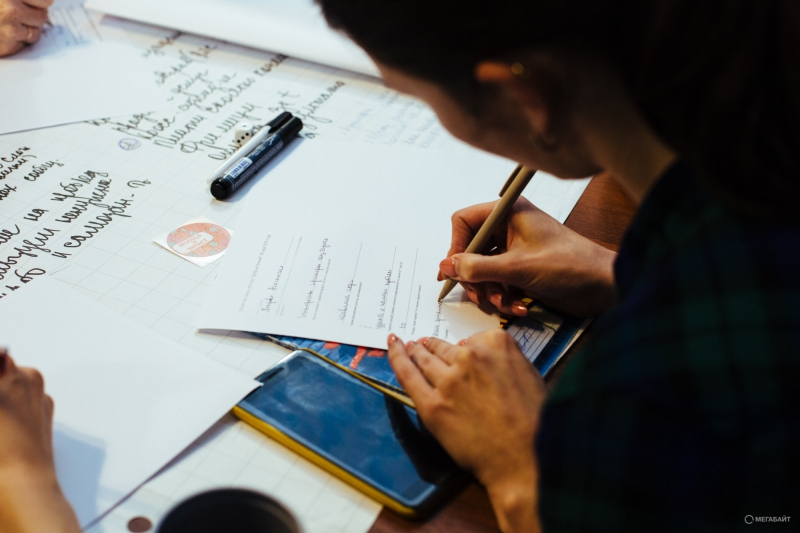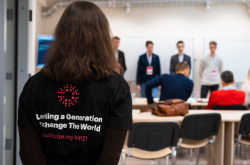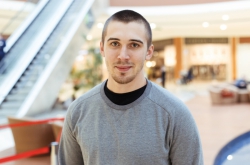Good Business is based on Matthew Manos’s Models of Impact Toolkit. In Russia, the game is organized by the graduates of the Professional Fellows Program, an international professional exchange program, with the support of the American Councils for International Education.
The goal of this game is to show social entrepreneurs and NGOs new kinds of approaches to financial sustainability. Businesspeople can learn how to integrate social contribution into their business models, while those in search of ideas may discover them during discussions and group work.
First, the participants analyze the models of monetization and social effects using the examples of existing socially-minded businesses in Russia and abroad. Then, they develop models of social businesses that may later be implemented in the real life.
“We conduct a series of events in various cities: in the recent months, we’ve held two events in Moscow, one in Kazan, and one in St. Petersburg. The events are all quite similar, but the examples and ideas are different. For instance, the examples given in the first part of the game are picked to be relevant to our participants. Each team rolls the dice to see which social issue they will be trying to solve, and then they learn to find solutions using social business. Our goal is not to find the most important issue, but to teach the principle of social entrepreneurship, to help players understand how to combine social issues with business solutions. Some of the solutions may seem strange at first glance, but that is, too, part of our intention: by working creatively and looking at things from a new perspective, the players hone their skills which they will later apply in their own work,” explains Grigory Martishin, a Models of Impact ambassador in Russia, entrepreneur, and lecturer at the Plekhanov University of Economics.
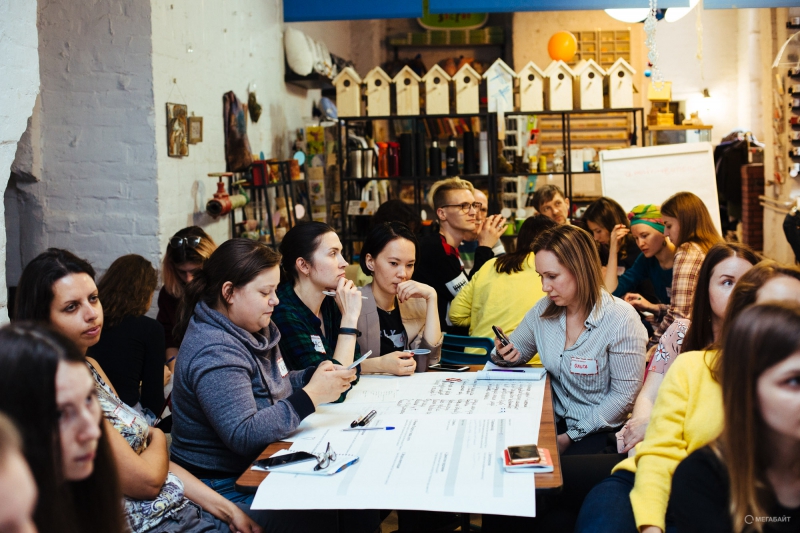
As per the rules of the game, the participants split into several teams, with each team putting forth six issues that concern them. Then, they roll a six-sided dice to decide which issue they’ll be tackling. Once each team has picked its topic, the players begin to brainstorm ways of reducing the severity of the issue in question and business models conducive to these solutions.
Participants must take into account the social effects of their business as well as its economic aspects, such as who will be its beneficiaries, which issue it will solve, the volume of contribution made by the project, and its economic viability.
“Good Business is an event that introduces people to the field of social entrepreneurship as well as provides new insights to those already involved. Among our participants are newcomers and established entrepreneurs for whom this game is an opportunity to learn about new trends, share experience, and find new points of growth for their projects. The game helps establish quality communication between the young and the experienced and form a kind of joint result,” explains Yuri Kuporosov, head of ITMO's Social Design and Entrepreneurship Center.
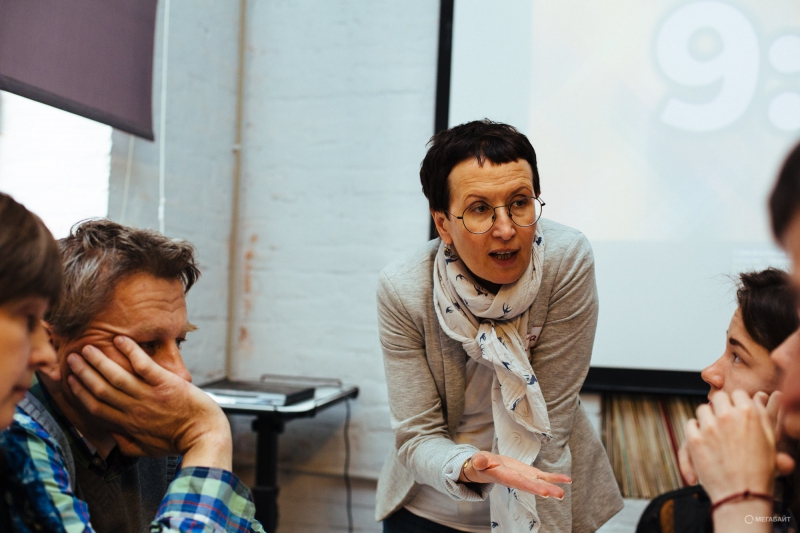
“The Leningrad Oblast Social Innovations Center conducts a variety of events that aim to get the younger generation involved in entrepreneurial activities, and social entrepreneurship is one of the fields we work with. People today are eager to become involved in this field, because the young want not only to make money, but to also make their contribution. Events like Good Business help them learn how social businesses work, as well as practice some of their skills. In other words, this is a training session that lets you try and create something that works, ask yourself questions, and find the right answers. Our role, as authorities, is to say that we shall support any viable initiatives. Entrepreneurship can be difficult, and the social kind twice so, for it implies readiness to work 24/7, not lose interest, and not get burned out in the process. That is why we help them in a number of ways including motivational and educational events, and subsidy programs,” comments Irina Vishnevskaya, head of the Leningrad Oblast Social Innovations Center.
Three of the teams that participated in the recent session took on the issue of elderly care. One team tackled the subject of loneliness and social adaptation of senior citizens using the redistribution of existing retiree housing. Its member suggested developing a business that would redistribute housing among retirees who own extra living space and wish to share it with others. The participants would be paired up based on their psychological compatibility, while the resulting vacant housing could be rented for additional profit. The team also considered the option of settling young families together with the retirees in order to provide the latter with assistance and financial help.
Another team suggested teaming up students and retirement age citizens for the production of various goods: clothing, appliances, or even artwork. The older generation possesses well-honed skills that are no longer in demand (engineering, sewing, etc.), while the younger generation possesses an understanding of today’s market demands. By combining their abilities, the two age groups could produce viable products together.
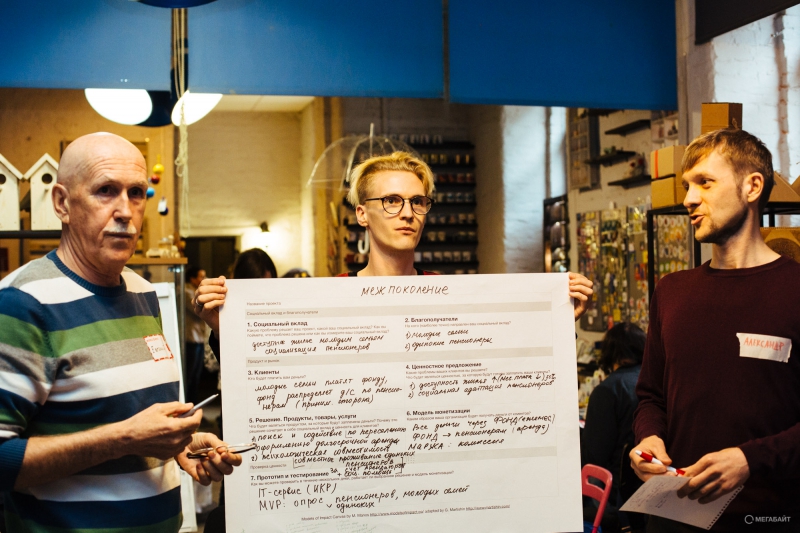
The third team put forth the notion of filling in vacant job positions with young retirees (aged 60 to 70), who could apply their professional skills or acquire new ones if necessary. The team also suggested running workshops where the senior citizens would be able to share their professional experience.
Another team, which titled its project V Pitere Zhit (“To Live in St. Petersburg”), suggested founding a recruitment agency that would establish relations between people of low and mid-tier professional training at risk of losing their permanent housing and companies that are always in need of staff and can provide living space: hostels. The authors of this project intend for it to serve as a preventative measure against homelessness.
“For the past five years, I’ve been involved in social charity work, and namely “rebooting” spaces such as libraries and youth centers. Right now I’m involved in a project by the Dom Neighborliness Center, which aims to establish a community center that will unite various urban communities such as support groups and charity volunteering foundations. I took part in the game because I’m interested in social entrepreneurship, and this is not my first such event. I’ve taken part in business incubation programs and spoke at various youth conferences. I’m interested in learning about the young people who want to be involved in social entrepreneurship. I’ve also understood that, as an employee of a state institution, I can observe the changes from within and my team and I have now gotten to the point where we can create our own socially-minded company, share our experience with other regions, run seminars, sign research contracts with other state institutions, and develop concepts and designs for libraries, youth clubs, and cultural centers all over Russia,” says Veronika Sedilina, an employee of the Dom Neighborliness Center and a member of the V Pitere Zhit team.
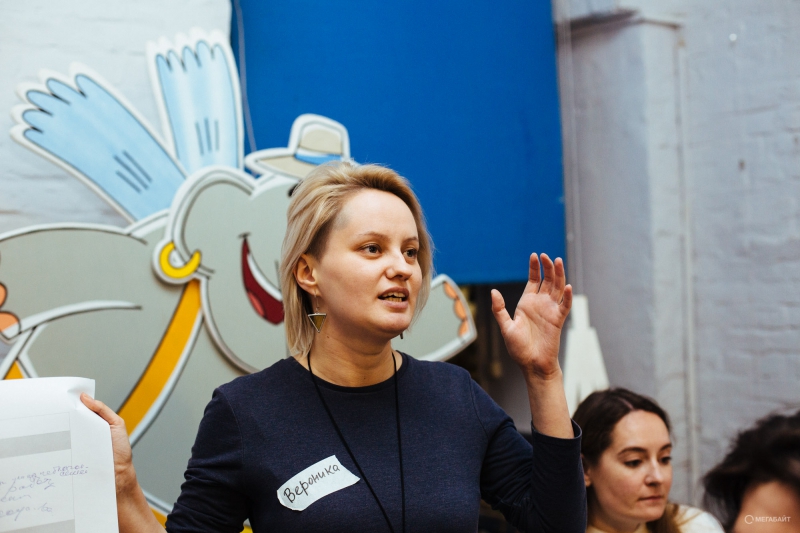
The event’s final team worked on the issue of inadequate family leisure opportunities, suggesting themed picnics as a solution that would help establish communication between adults and children as well as among the adults. The project is designed for both families who are aware of communication issues and the ones who aren’t.
“There are examples of ideas developed by our players that were later turned into real businesses. For instance, one of the projects here targets two issues that concern the elderly: financial troubles and the feeling of being useless. We have the student project Babulitto that employs grandmothers who cook lunches for students. The babushkas get money for their work, and the students get fed. We haven’t been running these games for long, and, of course, we’re interested in seeing what comes next. We plan to analyze our results and understand how the participants apply the skills they acquire here. Our goal is not to create as many projects as possible right there and then. To us, the result is not the number of projects that emerge on our platform, but the new skills that the players will apply in their later work,” explains Grigory Martishin.
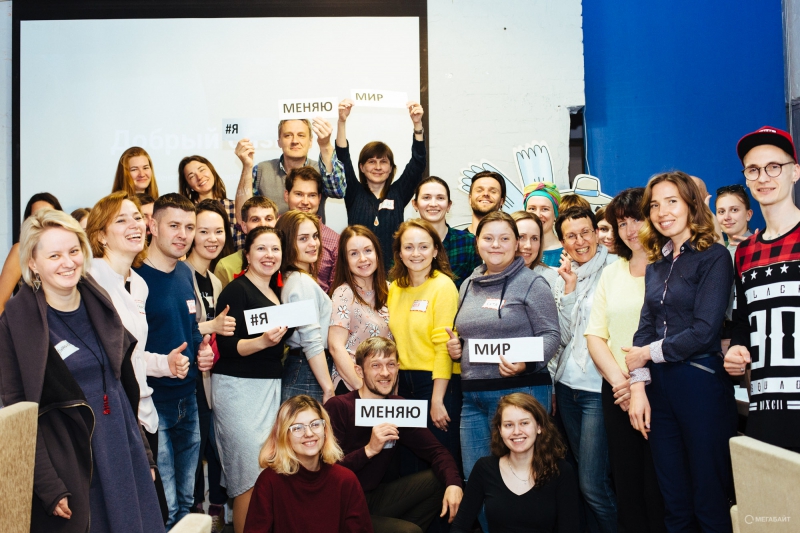
Good Business was held at the Legko-Legko event space, a place significant to social entrepreneurship in St. Petersburg and the Leningrad Oblast. Legko-Legko is the first store in Russia that sells products made by social entrepreneurs and non-profit organizations. Among the store’s partners are Anton’s Right Here, a center for the support of people with autism, Nochlezhka, a charity organization providing aid to homeless, and the AdVita charity foundation, which helps people with oncological diseases (proceeds to the foundation come from sales of merchandise with the characters of the world’s first charity cartoon Flying Animals).
